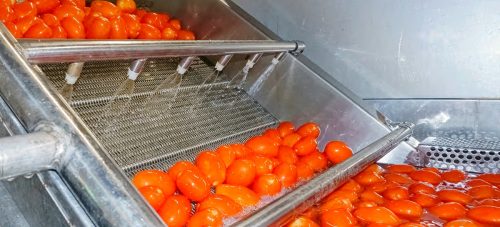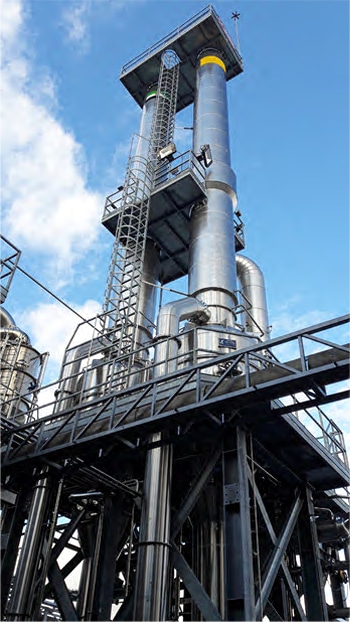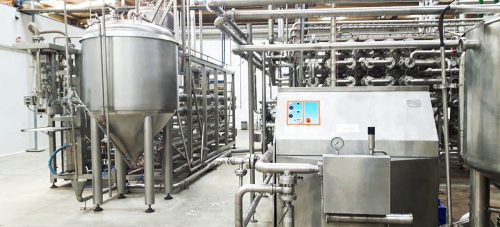The food concentrates industry is one of the most powerful sectors in Southern Europe. There are many plants dedicated to manufacturing concentrated products such as tomato, citrus fruit, milk, sweets, alcoholic beverages and aromatic essences, among others.
The concentrate production process consists basically of eliminate the water presence in the raw material to obtain a product with extremely intense properties. At the same time, their volume and weight are reduced by more than 90%, which facilitates their transportation and storage. What is more, concentrated products can be stored for long periods of time without spoiling and without their properties being altered. In this highly concentrated state, the product is rarely fit for human consumption and thus needs to be subjected to additional processing to obtain the end product.
Both the finished product and the processes used to obtain it pose a challenge for sealing systems. Highly concentrated fluids with low humidity have no lubricant properties and can also be extremely abrasive. For this reason, specific solutions are required to prevent premature wear, such as double mechanical seals and special materials such as tungsten carbide. In turn, the processes involve working conditions such as high temperatures and pressures, which will also require special treatment.
Practically any raw materials can be concentrated, but the most usual products are juices, tomato sauces and milk. The same procedure is also usual in the production of essences for stock based on almost all types of meat and/or vegetable ingredients.

Different processes exist that may vary, depending on the end product that is to be manufactured, but the basic steps are usually the same:
- Washing and preparing the raw material. The first thing is to wash the raw materials and then remove all parts that contribute no properties to the end product, for instance, the skin of fruit and meat bones.
- Crushing and sieving; the raw material must be ground and then filtered to remove all traces of substances that must not be present in the end product. In addition, the ground product is normally pre-heated to around 80°C before being sieved, to facilitate the separation process. During this process, the sealing systems must be able to withstand the extreme conditions of the grinders as well as knocks, vibrations and abrasive fluids. For this reason, very large mechanical seals are often used, with solid contact surfaces made from resistant materials such as tungsten carbide.
- Evaporation; the next step consists of eliminating the water from the product while also “cooking” it. This is done in concentration/evaporation towers that treat the product during different phases. At this point, the mechanical seals are normally used in double seal arrangements to ensure their lubrication and cooling.

Finally, the product is subjected to sterilisation processes to increase the storage time and is then packaged. During this step of the process, many mechanical seals and gaskets are used that can support the high temperatures of the process, which may reach up to 140°C, in addition to special systems that can operate with near-solid products.

By that time, the product is highly concentrated and can easily be transported to any manufacturing plant for the final elaboration phase. This last phase normally consists of adding water again, to give the end product the desired characteristics.
Last of all, as in any food industry, the mechanical seal is subjected to the necessary CIP and SIP process conditions. Such processes involve very high water and steam temperatures as well as the use of chemically-aggressive fluids such as cleaning agents with high concentrations of caustic soda or nitric acid. For this reason, the most recommended materials are seals made of peroxide-cured EPDM rubber and 316 stainless steel or Hastelloy seals for metal components.









